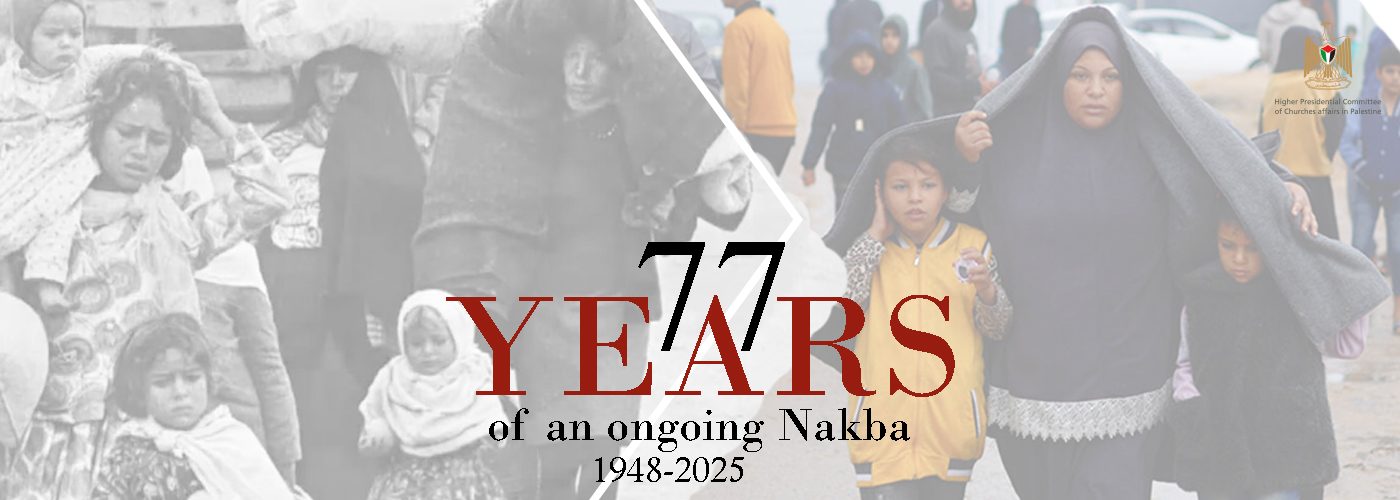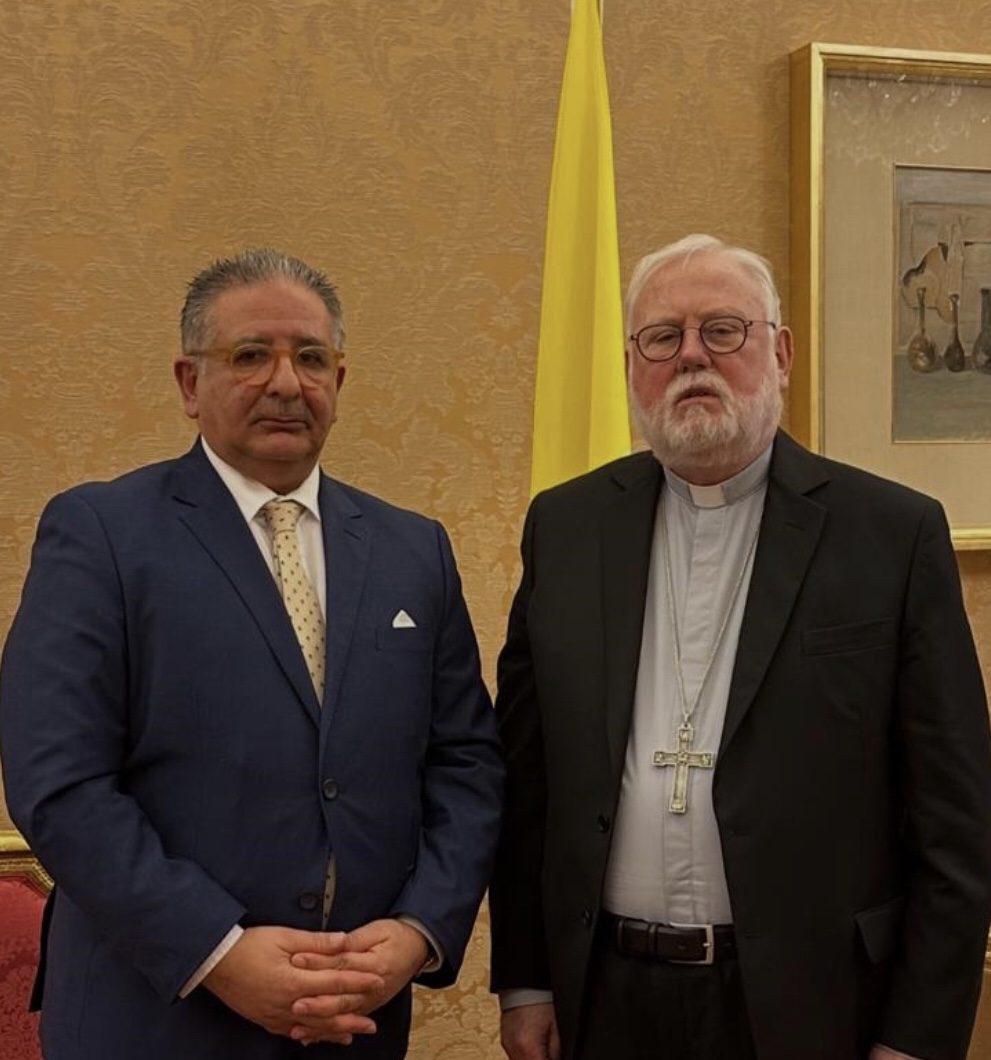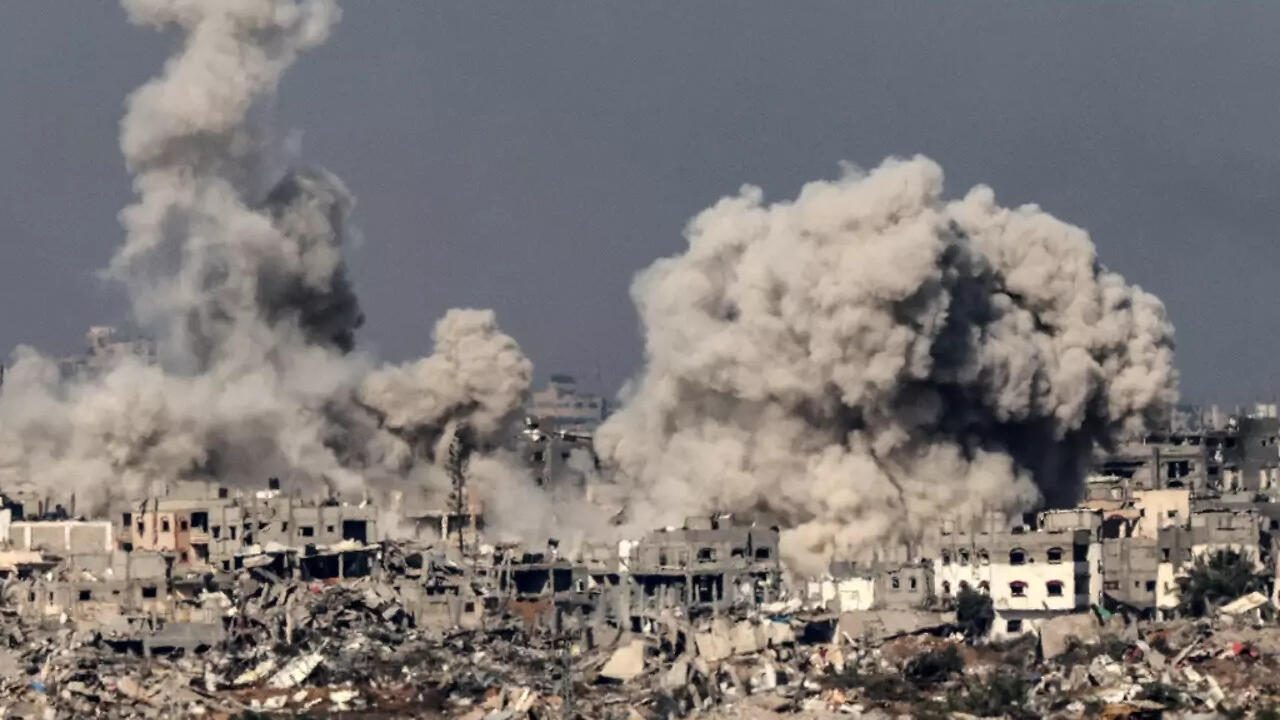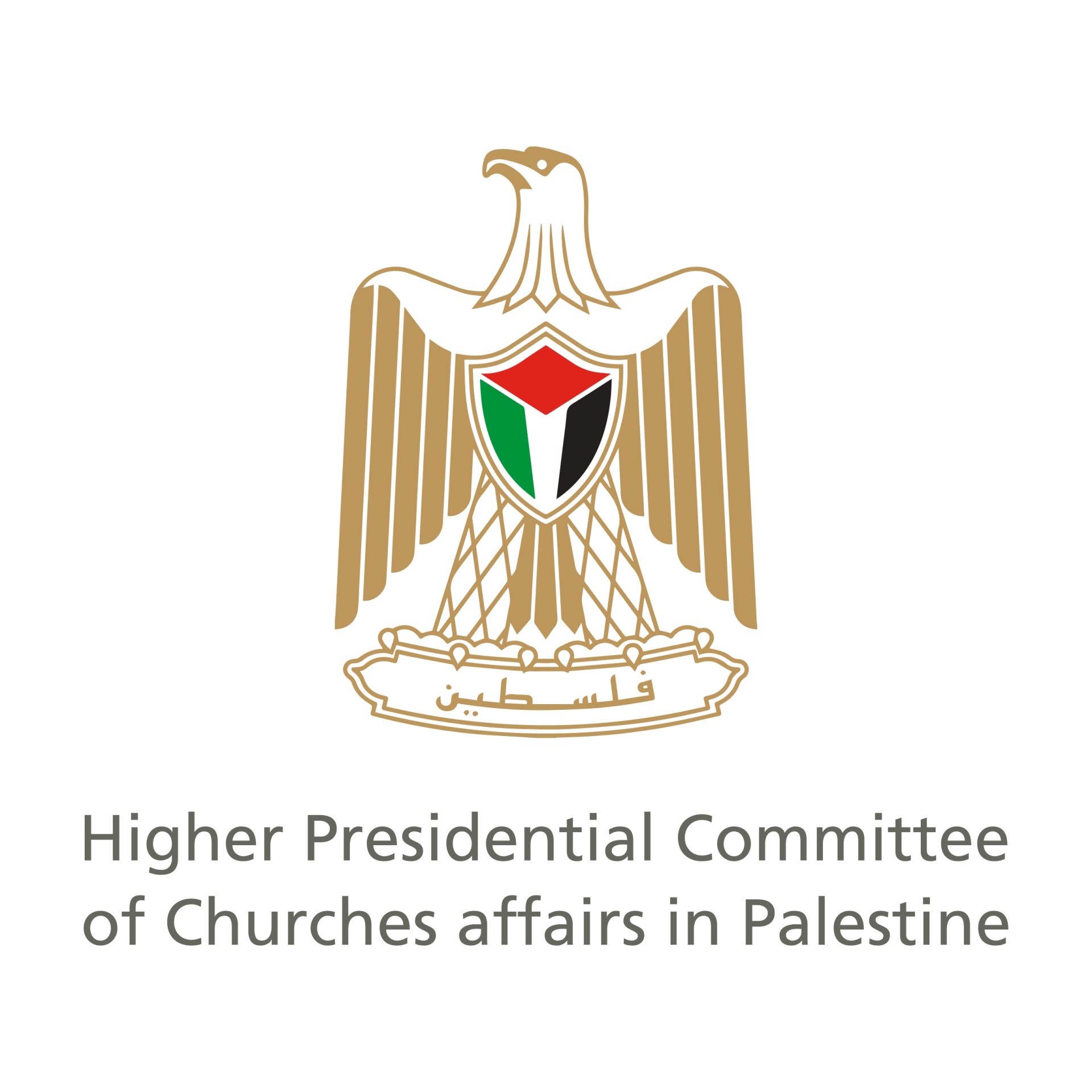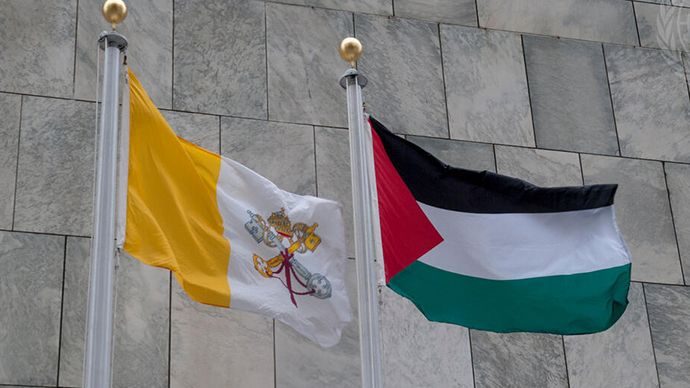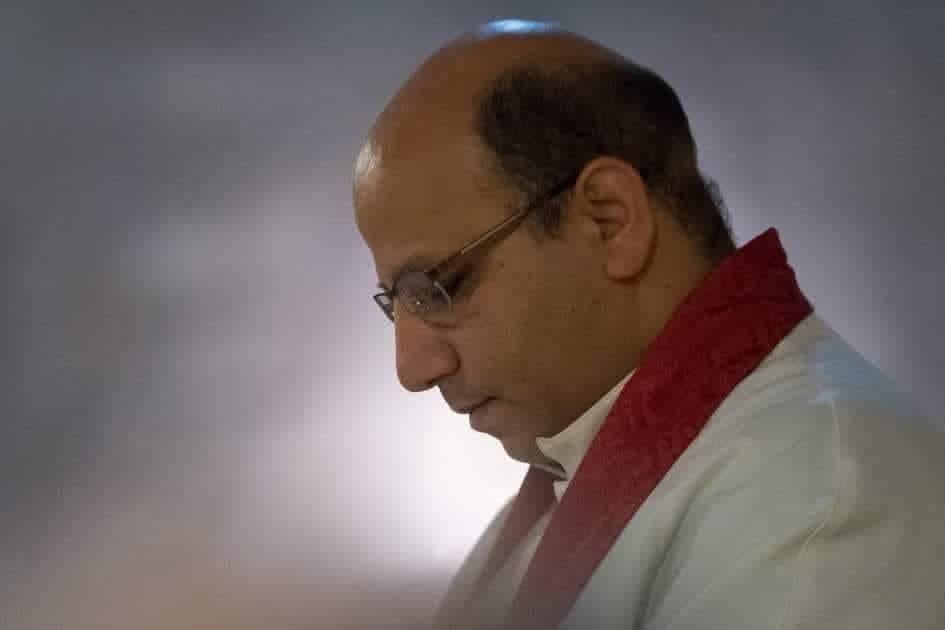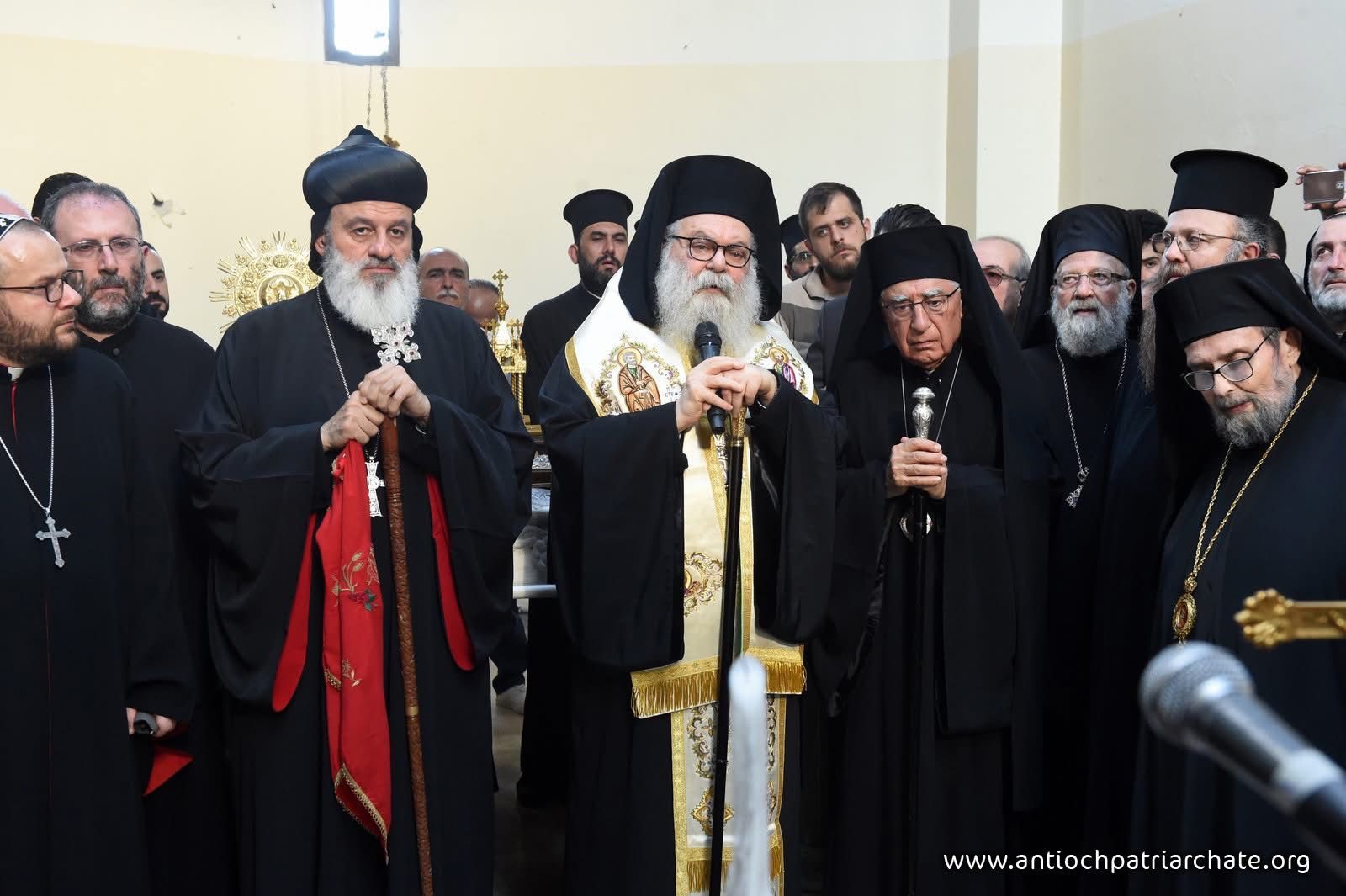On the 77th anniversary of the Nakba, the catastrophic displacement of over 750,000 Palestinians in 1948, the Higher Presidential Committee for Church Affairs in Palestine, led by Dr. Ramzi Khouri, member of the PLO Executive Committee, issues a stark and urgent warning: the genocide unfolding in the Gaza Strip and the relentless Israeli aggression across Palestine are not isolated acts of war, but the continuation of a deliberate campaign to erase the Palestinian people, their presence, history, and future, from their land.
From Gaza’s shattered churches to the silent ruins of once-thriving villages, the echoes of 1948 grow louder. The bombing of St. Porphyrios Church, where civilians sought refuge, stands as a chilling symbol of this brutal continuity. The Nakba is not a historical memory, it is a lived reality. What began 77 years ago continues today in Gaza, in Jerusalem, in the refugee camps and cities of the West Bank.
The Committee’s statement commemorates not only the past, but bears witness to a present soaked in pain. Over 52,862 Palestinians have been killed in Gaza since the genocide began – including at least 30 Christians, many of them murdered while sheltering in churches. Nearly 1.9 million people – 90% of Gaza’s population – have been forcibly displaced, including 900 Palestinian Christians. The siege has reduced Gaza to a graveyard of families, a place where the sanctity of neither mosque nor church is spared, and where starvation, disease, and bombardment have replaced daily life.
Dr. Khouri condemned the Israeli military for its unprecedented cruelty in targeting civilians, including Christian families. Churches were bombed as indiscriminately as mosques. Prayers were buried beneath the rubble, and sacred bells were silenced by bloodshed. This is not collateral damage, it is a deliberate war to uproot a people from their very soul.
The Committee drew direct lines between today’s atrocities and the 1948 Nakba, which saw more than 40,000 Christians displaced and over 500 Palestinian towns and villages destroyed, including their churches. The intent, then and now, remains the same: to erase the spiritual, cultural, and national identity of Palestine.
In the West Bank, Palestinians face another form of erasure. Military checkpoints, home demolitions, nightly raids, extrajudicial killings, settlement expansion, and settler violence have turned entire cities – including Jenin, Nablus, and Tulkarem – into war zones. Refugee camps have become prisons. Families have been uprooted at gunpoint. Basic rights have been replaced with daily humiliation, fear, and death.
In Jerusalem, the campaign against both Christians and Muslims has intensified. The Israeli government enforces severe restrictions on worshippers, assaults clergy, and targets Muslim and Christian holy sites. This Easter, like many before it, saw churches barricaded, pilgrims beaten, and worship turned into resistance. The Committee underscores that the Christian presence in Palestine – ancient, rooted, and native – is under grave threat. What we are witnessing is not just a war on people, but a war on identity, faith, and memory.
The Committee calls on the international community, global churches, and human rights organizations to act, not with words, but with accountability. It demands urgent international intervention to stop the genocide, lift the siege on Gaza, and hold Israel accountable for its violations of international law. There can be no peace without justice, and there can be no justice without ending the occupation and recognizing the Palestinian people’s right to live freely and with dignity in their homeland, including their right to establish a sovereign, independent state with Jerusalem as its capital.
As we mark 77 years of dispossession, pain, and perseverance, we do so not in mourning alone, but in defiance. The Nakba did not end. But neither did the Palestinian people.
END

